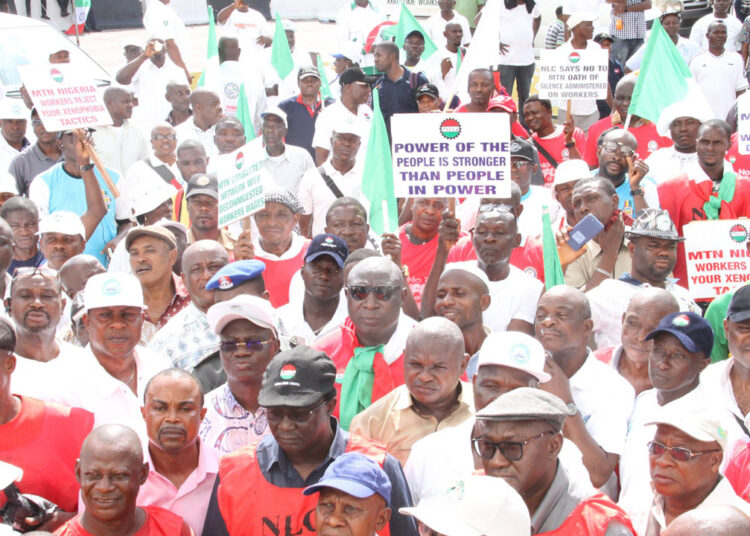The Nigeria Citizen Watch for Good Governance (NCWGG), has condemned the Nigeria Labour Congress (NLC) for its planned nationwide protest on February 4, stating that the demonstration goes against the interests of Nigerian workers, the telecommunications industry, and the economy at large.
A statement issued to our newsmen yesterday in Abuja, president of NCWGG, Collins Idowu, argued that the NLC’s opposition to the Nigerian Communications Commission (NCC)’s approval of a 50% telecom tariff adjustment was both misplaced and uninformed.
“Idowu explained that the NLC took a leap before thinking when it decided to call for protests over the recent approval for telecom operators to adjust their tariffs by 50%,” he said.
“Did they consider the costs and losses these companies have suffered in recent years to keep services running? Did they consider the millions of jobs at risk if the telecom sector collapses due to financial constraints?”
He emphasized that the NCC’s approval allows telecom operators to increase tariffs by up to 50%, a figure significantly lower than the operators’ initial request of over 100%, which was driven by rising operational costs.
The NCWGG maintained that the tariff adjustment was a necessary step to sustain the telecommunications industry, ensuring continued investment, expansion, and improved service delivery.
“He further stated, NLC should have instead called for regulatory oversight to ensure Nigerians receive quality services in exchange for the new tariffs, rather than trying to sabotage the industry with unnecessary protests,” he said.
The group also accused the NLC of selective activism, questioning why it failed to protest the over 300% increase in electricity tariffs or the soaring cost of food items across the country.
“This is nothing but political posturing. If the NLC truly cared about Nigerian workers, they would have led protests when electricity prices tripled or when basic foodstuffs became unaffordable,” he added.
Describing the NLC’s planned protest as an “act of economic sabotage against the Nigerian people and the Tinubu administration,” the NCWGG vowed to mobilize its members across all 36 states and the FCT to counter any demonstrations against the telecom tariff hike.
The group also cited a GSMA report, stating that the tariff adjustment could unlock over $150 million in investments for 4G expansion, benefiting over nine million Nigerians.
Additionally, they argued that the move would increase digital access in rural areas, boost Nigeria’s GDP by 2%, and strengthen the telecommunications industry to provide uninterrupted services.
“Increasing tariffs is a necessary step to sustain the industry, attract investments, and improve service quality. We cannot allow the telecom industry to collapse like NITEL,” he said.











